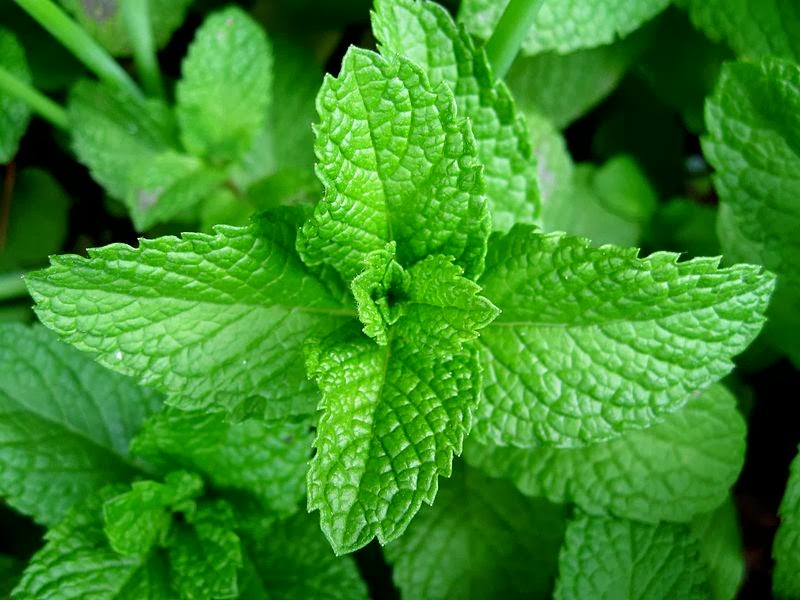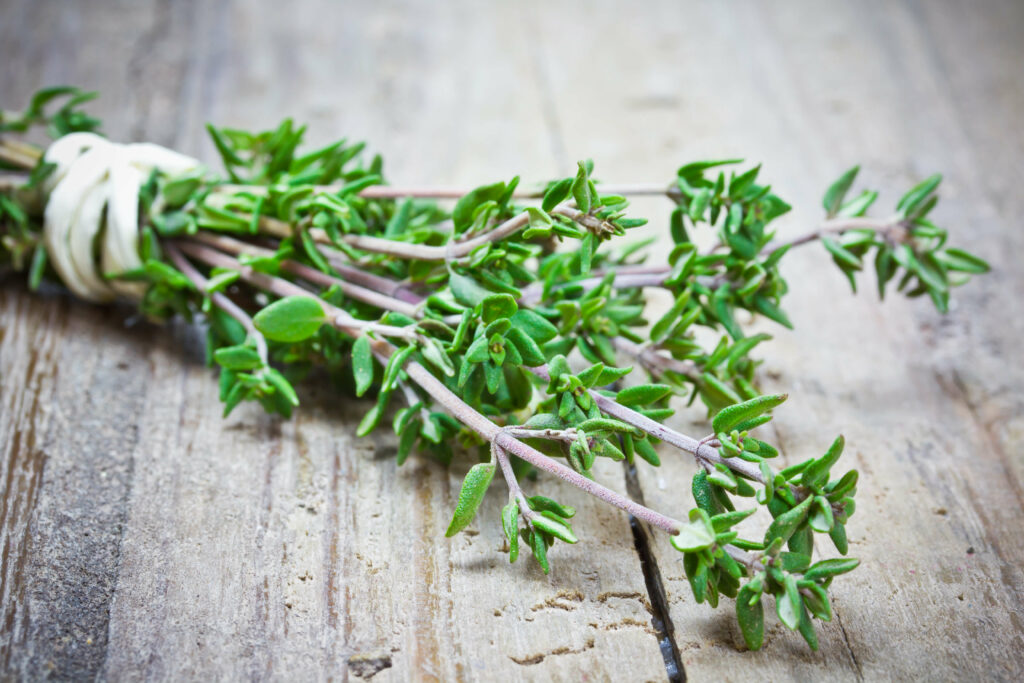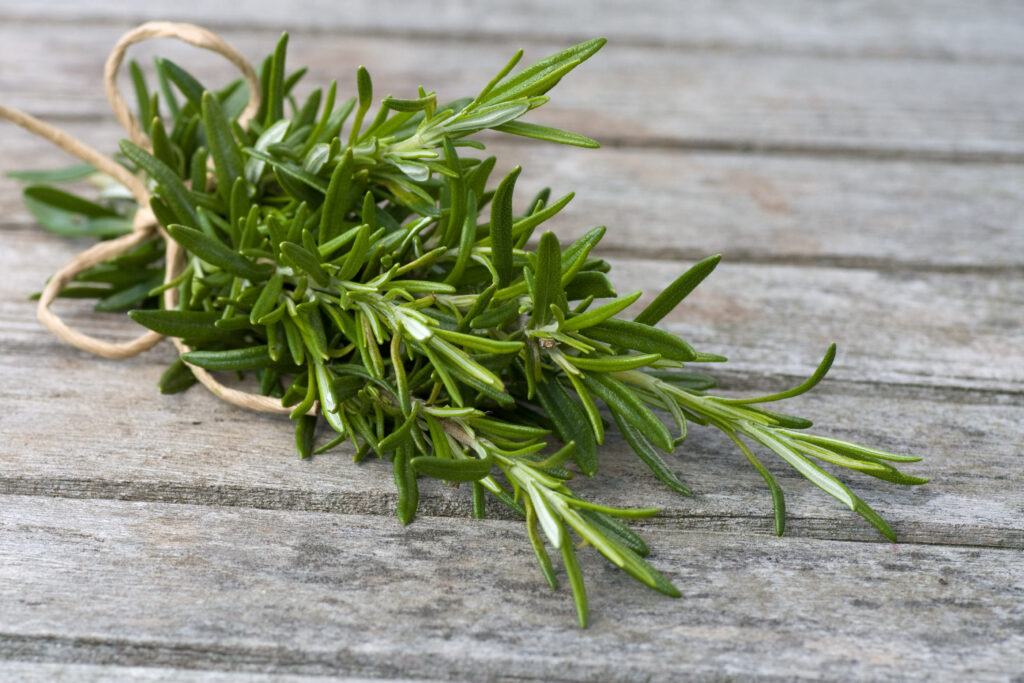START BOOKING YOUR TRIP TO Greece
** Please note that we get a small commission if you book via our referral links. We use this to invest in new foodie content and to update the Greece Foodies website.
The art of Greek Herbs
The art of Greek herbs starts from the Greek climate that is ideal for growing herbs. From the mountainsides to green meadows, you can find herbs growing naturally.
The ancient Greeks believed that herbs have healing properties and this belief was passed down from generation to generation. Greek grandmas always have the “medicine”, whether you are sick, you have the flu, you are stressed, or you can’t sleep. Let’s unravel some of the secrets of the art of Greek Herbs.
Greek Mountain Tea or Sideritis: A herbal tea for every moment of the day
It is one of the most popular herbal teas in Greece. You can buy it at the market or even find it on your own on the mountainside or forests. Sideritis makes excellent tea with anti-microbial action but you can also use it as a herb in various dishes in Greek cuisine.
Greek Herbs in History and Culture
The Ancient Legacy of Greek Herbs
In ancient Greece, herbs held a significant place in daily life, permeating various aspects of society. The historical use of herbs dates back thousands of years, where they were embraced not only for culinary purposes but also for medicinal, religious, and aromatic applications. Greeks cultivated and harvested a wide array of herbs, such as oregano, thyme, rosemary, and mint, recognizing their unique flavors and therapeutic properties. These herbs were integrated into everyday recipes, enhancing the taste of dishes and defining the essence of Greek cuisine.
Mythology and the Cultural Significance of Herbs
Greek mythology weaves a rich tapestry of herbs, attributing symbolic meanings and mystical qualities to various plants. Herbs like laurel were linked to the god Apollo, representing wisdom and victory, while myrtle was associated with the goddess Aphrodite, symbolizing love and beauty. Beyond their mythological connections, herbs played pivotal roles in religious ceremonies and traditions. They were used as offerings to the gods, to purify spaces, and as symbols of protection and blessings. Even in the context of everyday life, herbs were cherished, and their cultivation was infused with cultural significance and spiritual connotations.
Popular Greek Herbs and Their Benefits
Mint or Menta

Greek Mythology has mint named after Minthe, a nymph in the sea, who had an affair with Hades, the God of the Underworld. When Persephone, his wife, learned this, she turned Minthe into the herb that we know today.
Benefits: Mint is one of the most aromatic Greek herbs, that Greeks use mostly in gastronomy. However, in the form of herbal tea, mint is suitable for indigestion problems, nerve disorders, headaches, and insomnia. Its great aroma makes mint unforgettable.
Read more: Greek Gastronomy: Vegetarian Greek Food
Sage or Faskomilo
 Sage or Faskomilo or in Latin Salvia is an herb that helps you lower your cholesterol, enhance your memory and soothe skin irritations. It has a unique strong taste. Ancient Greeks believed that Sage stopped death and was the key to immortality and long and healthy life. This belief inspired the Romans to name it Salvia, the one that saves lives.
Sage or Faskomilo or in Latin Salvia is an herb that helps you lower your cholesterol, enhance your memory and soothe skin irritations. It has a unique strong taste. Ancient Greeks believed that Sage stopped death and was the key to immortality and long and healthy life. This belief inspired the Romans to name it Salvia, the one that saves lives.
Benefits: Sage, known as “faskomilo” in Greek, is renowned for its memory-enhancing abilities, and its anti-inflammatory properties can soothe sore throats and ease digestive discomfort.
Thyme

Greek Thyme, a prized herb in the ancient realm of Greek cuisine, plays a starring role in the creation of a delectable homemade Greek seasoning blend. With its fragrant, earthy aroma and distinctively savory taste, Greek Thyme elevates traditional Greek dishes to culinary masterpieces. To craft the perfect homemade Greek seasoning mix, one must harness the essence of this herb, skillfully blending it with other fresh herbs and spices like Greek oregano.
The art of Greek cooking lies in understanding the harmony between herbs and spices, and creating an authentic Greek seasoning recipe that captures the true essence of the Mediterranean flavors. By infusing dishes with this delightful seasoning, every bite becomes an enchanting journey to the ancient lands of Greece, where the magic of herbs and spices comes alive, transporting taste buds to a realm of gastronomic bliss.
Benefits: Thyme, or “thimari” in Greek, contains essential oils with antiseptic properties, benefiting respiratory health and supporting the immune system.
Rosemary

Greek Rosemary, an aromatic and versatile herb, holds a significant place in Greek culinary traditions. With its needle-like leaves and distinctive pine-like fragrance, rosemary imparts a delightful and savory flavor to a variety of Greek dishes. From roasted lamb and grilled fish to hearty stews and homemade Greek seasoning blends, this herb enhances every recipe it graces. Beyond its culinary prowess, Greek Rosemary is celebrated for its symbolic significance, representing love, remembrance, and loyalty in Greek folklore and traditions.
Whether fresh or dried, Greek Rosemary adds a touch of Mediterranean charm to the cuisine and weaves a thread of ancient history and cultural richness into each dish. Its essence captures the essence of Greek cuisine, making it a cherished herb that continues to enchant taste buds and hearts alike.
Benefits: Rosemary, or “dendrolivano” in Greek, is a rich source of antioxidants that may improve circulation, memory, and concentration, while its anti-inflammatory effects offer potential benefits for skin and hair health.
Food Tours in Greece to experience Greek herbs
Taste the Culture of Greece: A Live Cooking Experience
Discover the flavors of Greek cuisine with a cooking workshop and wine tasting experience in Argassi. Join a local chef for a hands-on experience with olive oil, fresh herbs, and seasonal ingredients.
Cooking with Greek Herbs: Embracing Mediterranean Flavors
Greek cuisine is renowned for its vibrant flavors and aromatic herbs that transform simple dishes into culinary delights. The art of cooking with Greek herbs is an essential aspect of Greek culinary traditions, adding depth and authenticity to various recipes. Let’s explore the wonders of Greek herbs and how they can elevate your everyday cooking.
Traditional Greek Recipes with a Herbaceous Twist:
- Moussaka with Oregano: Prepare the classic Greek moussaka, a hearty layered dish with eggplant, potatoes, and a rich meat sauce infused with oregano. This aromatic herb imparts a warm and earthy flavor, enhancing the taste of every forkful.
- Lemon-Herb Roasted Chicken: Create succulent roasted chicken marinated with a medley of Greek herbs like rosemary, thyme, and marjoram, along with zesty lemon. The combination of these herbs brings out the essence of Mediterranean cooking.
- Spanakopita with Dill: The famous Greek spinach pie, spanakopita, comes to life with the addition of fresh dill. The herb’s grassy and slightly anise-like taste complements the spinach and feta cheese, resulting in a delightful dish.
Discover more Greek Recipes
Everyday Cooking with Greek Herbs:
- Infused Olive Oil: Elevate your dishes by infusing olive oil with Greek herbs like basil, mint, or tarragon. Drizzle it over salads, grilled vegetables, or pasta to infuse them with a burst of Mediterranean flavors.
- Herb-Rubbed Grilled Fish: Prepare a simple yet flavorful herb rub with a blend of Greek oregano, thyme, and parsley, and coat your favorite fish before grilling. The aroma of these herbs will tantalize your taste buds.
- Herbed Yogurt Dip: Combine Greek yogurt with finely chopped herbs like chives, mint, and dill to create a refreshing and tangy dip. Pair it with pita bread or use it as a condiment for grilled meats.
Greek Herbs in a NutShell
The art of Greek Herbs has deep roots within the Greek gastronomy. Next time when you feel sick or stressed, seek the answer first to nature, maybe some of the Greek Herbs will do the trick. And when you prepare your tea, don’t forget the spoon of honey before you drink it.
Check out more blog posts about Food in Greece
A team of foodies, cooks, and travelers. Alios Tours was founded out of our passion for Greek food. We share the delicious side of Greece.
















